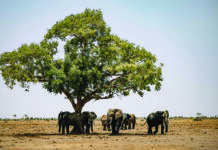Mauritius can draw inspiration from island models that have successfully reconciled ecological preservation with economic development, such as the Fijian archipelago. An examination of strategies that could transform the ecosystemic future of the Mauritian State. Jean-Jacques André
The two oceanic territories share similar climate vulnerabilities, yet Fiji displays a significantly superior natural record while maintaining comparable financial vitality. The key to success lies in their holistic approach: preservation of forests and coastal biotopes, alongside tourism development; energy diversification toward hydroelectricity, solar power, and biomass; climate adaptation methods that simultaneously protect natural heritage and productive infrastructure.
A finding emerges among countries performing well environmentally: the close link between literacy and optimal resource management. Our territory benefits from considerable advantage, with education rates comparable to those of much wealthier countries and significantly higher than many of its African neighbors. This educational foundation constitutes fertile ground for developing sophisticated ecological management systems based on understanding and citizen engagement. International experience demonstrates that educated populations create greater capacity to implement relevant protective regulations, design innovative solutions, and mobilize operators around conservation projects. Analyses also reveal that behind every sustainable success lies effective governance. Regardless of their level of prosperity, territories characterized by administrative efficiency, transparency, and integrity systematically achieve better results in natural resource valorization.
Our next section will explore specific recommendations for how the jewel that is our island can transform its climate performance, starting with the decisive factor that distinguishes champions of nature protection.








